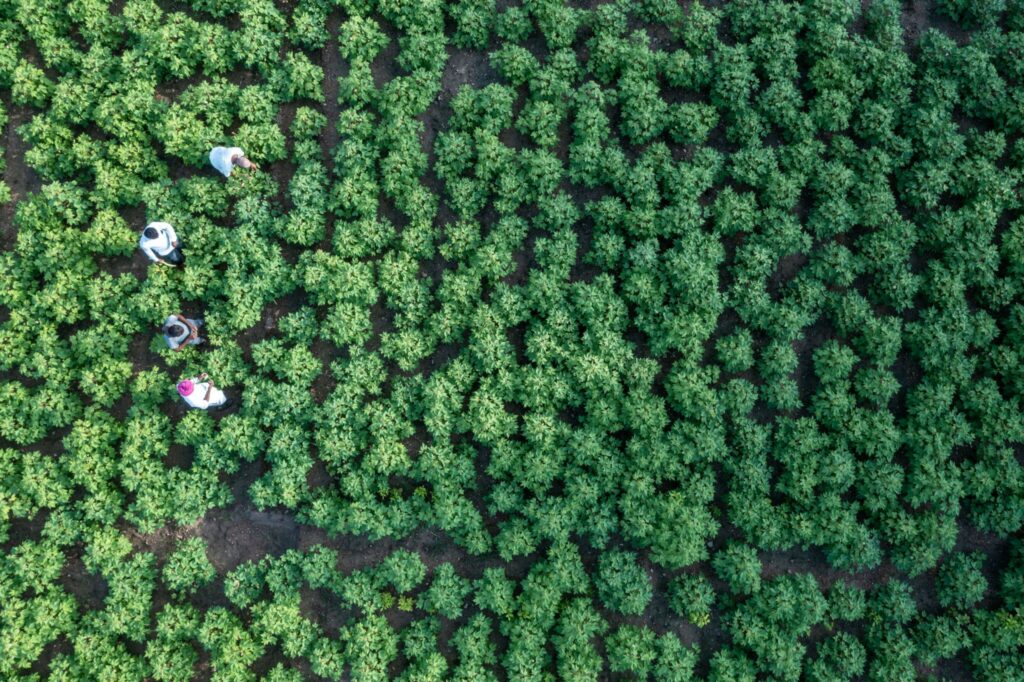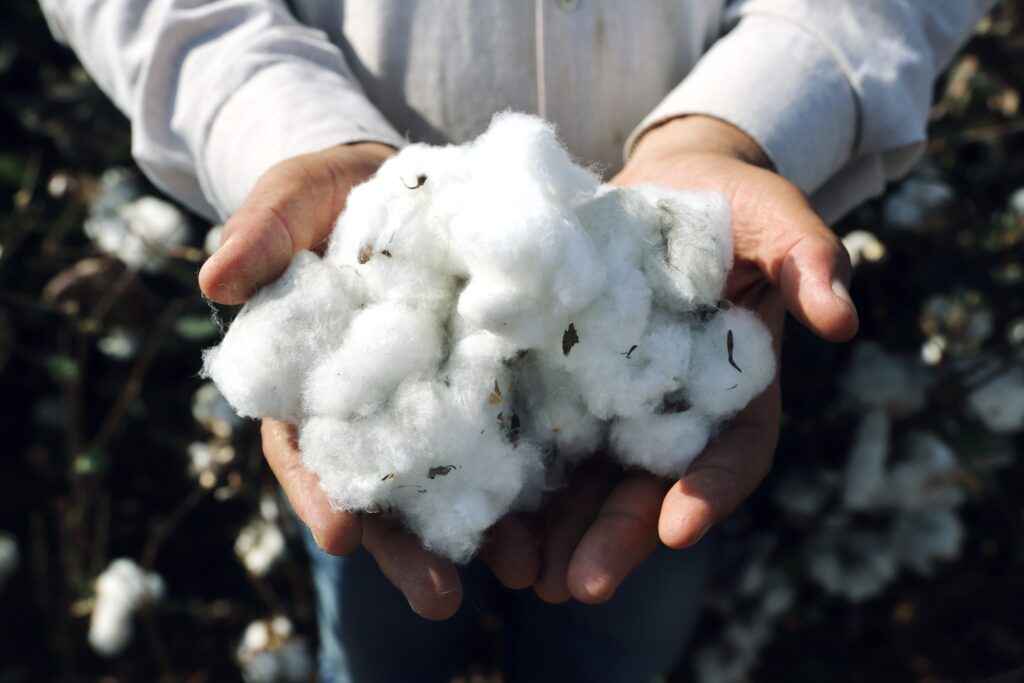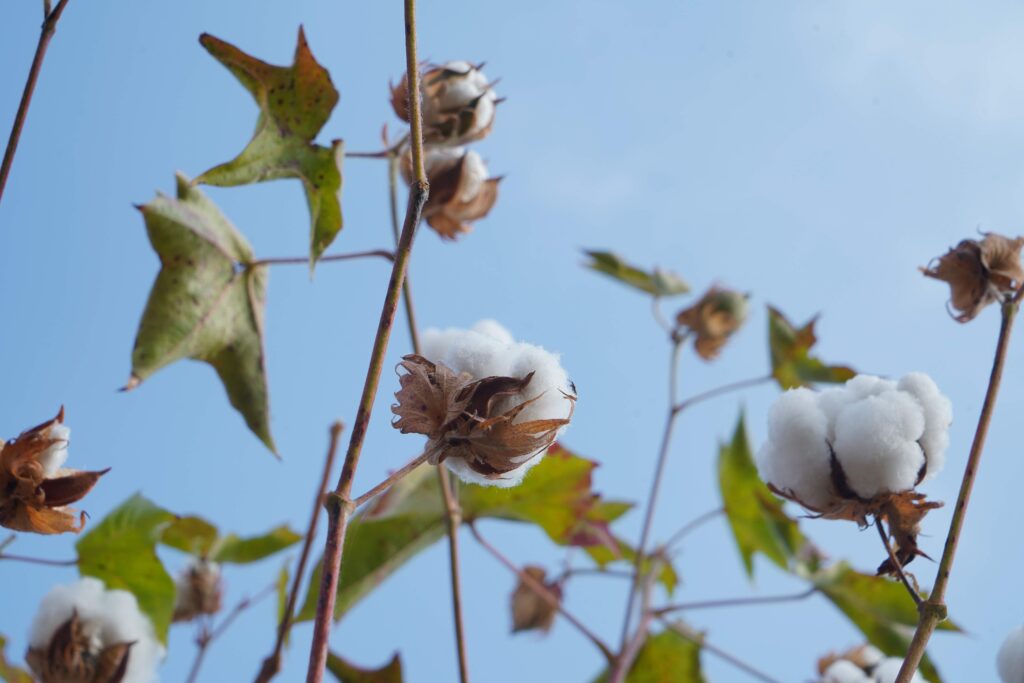Amsterdam, April 22, 2024 – The Organic Cotton Accelerator (OCA) released Organic Cotton’s Time Has Come, its impact report for the 2022-2023 cotton season. The report highlights significant strides in advancing organic cotton farming practices and driving systemic change in the textile industry. It also underscores the critical importance of supporting in-conversion cotton farmers to increase the global supply of organic cotton, while calling for more investments and industry-wide adoption of organic cotton.
Through its Farm Programme, OCA has mobilised a growing number of brands and retailers, empowered organic farmers to maximise their benefits and supported thousands of farmers in their transition to organic. This accelerates the availability of organic cotton for the entire supply chain and improves farmer livelihoods, whilst increasing the positive impact of organic cotton on people and the planet.
"We believe in the power of organic cotton to transform the textile industry," says Ruud Schute, Programme Director at OCA. "The time is ripe to challenge the status quo and harness organic cotton’s potential for positive impact on a global scale. An increasing number of brands and supply chain actors are including sustainable fibre and its origin in their sourcing scope. The moment for the textile industry to adopt more organic cotton and support farmers in their journey to organic is now."
Growing support for organic cotton
During the 2022-2023 season, OCA reports a strong surge in farmers’ adoption of organic cotton in India and Pakistan, accompanied by increasing interest in Türkiye, where OCA plans to extend its efforts. The Farm Programme mobilised 16 brand partners and 13 Implementing Partners—organisations on the ground which play a vital role in providing on-ground support, knowledge, and capacity building.
Over 70,000 farmers participated in OCA’s Farm Programme during the 2022-2023 season, harvesting cotton across over 91,000 hectares of farmland.
A better deal for farmers
Farmers are at the heart of the cotton supply chain. Ensuring farmers’ profitability and prosperity is of strategic importance for OCA. We prioritise improving the net income of organic farmers, because ensuring a competitive business case for them is essential to scale organic farming more widely. OCA’s Farm Programme is a framework which provides more certainty for farmers in a volatile market. By securing commitments from global brands, OCA prioritises farmers’ financial stability and improves their access to training and inputs, contributing to their resilience and livelihoods. Last year, farmers in OCA’s programme received an average of 7% on top of the market price for their cotton. In total, over €4.2M was paid to farmers in premiums in the 2022-2023 season. Coupled with the cost reductions, the premium boosted their net income compared to conventional peers.
Support for in-conversion cotton
Half the farmers participating in OCA’s Farm programme, over 35,000, are in-conversion farmers who are transitioning to certified organic farming, a process that takes up to three years. While this number is extremely encouraging for the growth of the sector, the report also shows that less in-conversion cotton has been procured than expected. OCA’s goal is to align the procurement rate of in-conversion cotton, 75%, with that of certified organic cotton, which is 84%. The clearest course of action for brands to bolster the organic cotton supply is to buy in-conversion cotton. Brands procuring in-conversion cotton recognise the importance of investing today for a more resilient organic cotton supply tomorrow.
Organic farming is inherently regenerative
Currently, there is demand within the industry for regenerative agriculture to address climate and biodiversity goals, alongside a growing importance to address social issues. The Farm Programme goes beyond certification requirements and better incomes for farmers to extend its environmental and social impact. In the 2022-2023 OCA has invested in an ambitious roll-out of demonstration farms showcasing a range of regenerative practices. Thousands of organic cotton farmers have already adopted regenerative farming practices with the support of experienced trainers who guide the process.
Robust data
OCA will continue delivering impact for the industry by developing methods to collect and understand robust social and environmental farm-level data. OCA is currently creating a dynamic Life Cycle Assessment (LCA) dashboard. This innovative tool will empower brands to report greenhouse gas reductions at the regional level in India. OCA is also implementing a trial for biodiversity monitoring, to further demonstrate the effect of organic farming practices on biodiversity. Just as important, on the social level, the organisation is committed to promoting better working conditions at the farm level by developing a Decent Work strategy, to be launched later this year.
Access the report here



